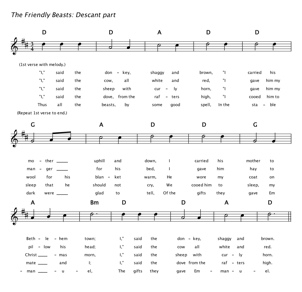Meg, an old friend back from the days when I was under 35 and heavily involved with Unitarian Universalist young adult programs, recently sent me an article about “the independent prayer groups, or minyanim, that Jews in their 20s and 30s have organized in the last five years in at least 27 cities around the country.” You can find the blog of one such independent prayer group here.
The article, written by Neela Banerjee, was titled “Challenging Tradition, Young Jews Worship on Their Terms,” and ran in the November 28 issue of the New York Times. Bannerjee claimed that these young Jews and their independent minayim “are challenging traditional Jewish notions of prayer, community and identity.” But Bannerjee also quotes a rabbi who sees these independent minayim as being a very positive force:
“If we were to say, ‘We are sticking to one institutional form or go away,’ then we would die as a people,” said Rabbi Feinstein, who is at Valley Beth Shalom in Encino, Calif., a Conservative synagogue. “Is it going to take young Jews that synagogues are counting on? Yes, unless you offer something better. Or better yet, invite the emergents in and make common cause.”
Indeed. Why not invite the emergents in and make common cause? That’s one of the reasons I fully supporty having CUUPS pagan groups affiliated with Unitarian Universalist congregations.
In any case, hearing from Meg reminded me about my days in Unitarian Universalist young adult groups. Lord knows those groups had their problems — chaos, disorganization, and conflict being chief among them — but when we managed to do worship, it was mostly very compelling. Indeed, the only time my partner Carol has regularly attended Unitarian Universalist worship was when we were going to young adult worship together.
I’ve said it before, and I’ll say it again: most Unitarian Universalist worship is pretty boring. Now that I’m middle-aged and no longer belong to young adult groups, where would I go to get a deeply spiritual experience? Personally, I would teach Sunday school rather than attend worship at almost any Unitarian Universalist church — not only do I find hanging out with Unitarian Universalist kids to be spiritually challenging and life-affirming — but most Unitarian Universalist worship doesn’t engage me, challenge me, help me to deal with my life or the wider world, feel like a celebration, or do any of the things that I want worship to do.
I can count the exceptions on my fingers: one worship service at All Souls Church in Washington, DC, where I felt truly uplifted in spite of a mediocre sermon; once at Church of the Open Door in Chicago’s South Side back when Karen Hutt and Alma Faith Crawford were ministers there; two or three worship services in the outdoor chapel at Ferry Beach, the Universalist conference center in Saco, Maine, led by Paul Boothby and one or two others. And I’ll add that I attended worship services regularly at First Parish in Concord, Mass., when I was in my early twenties and Dana Greeley was preaching there — his sermons managed to be spiritually fulfilling and outwardly directed at the same time.
Not that I know how to create truly dynamite Unitarian Universalist worship services that result in redemptive, transformative experiences — I’m all too well aware that the worship services I lead often leave a lot to be desired.
So, dear reader — even though there’s no such thing as a sure-fire recipe for truly good worship, tell me your ideas. What makes for truly kick-ass worship? How do you feel about independent UU prayer groups? Where do you go to find “redemptive, transformative experiences that give rhythm to [your] days and weeks and give meaning to [your] lives”? I’d especially like to hear from people in their 20s and 30s, and from middle-aged folks like Meg and me who are kinda bored by the usual Unitarian Universalist worship.

